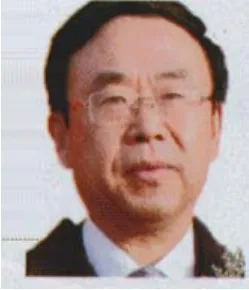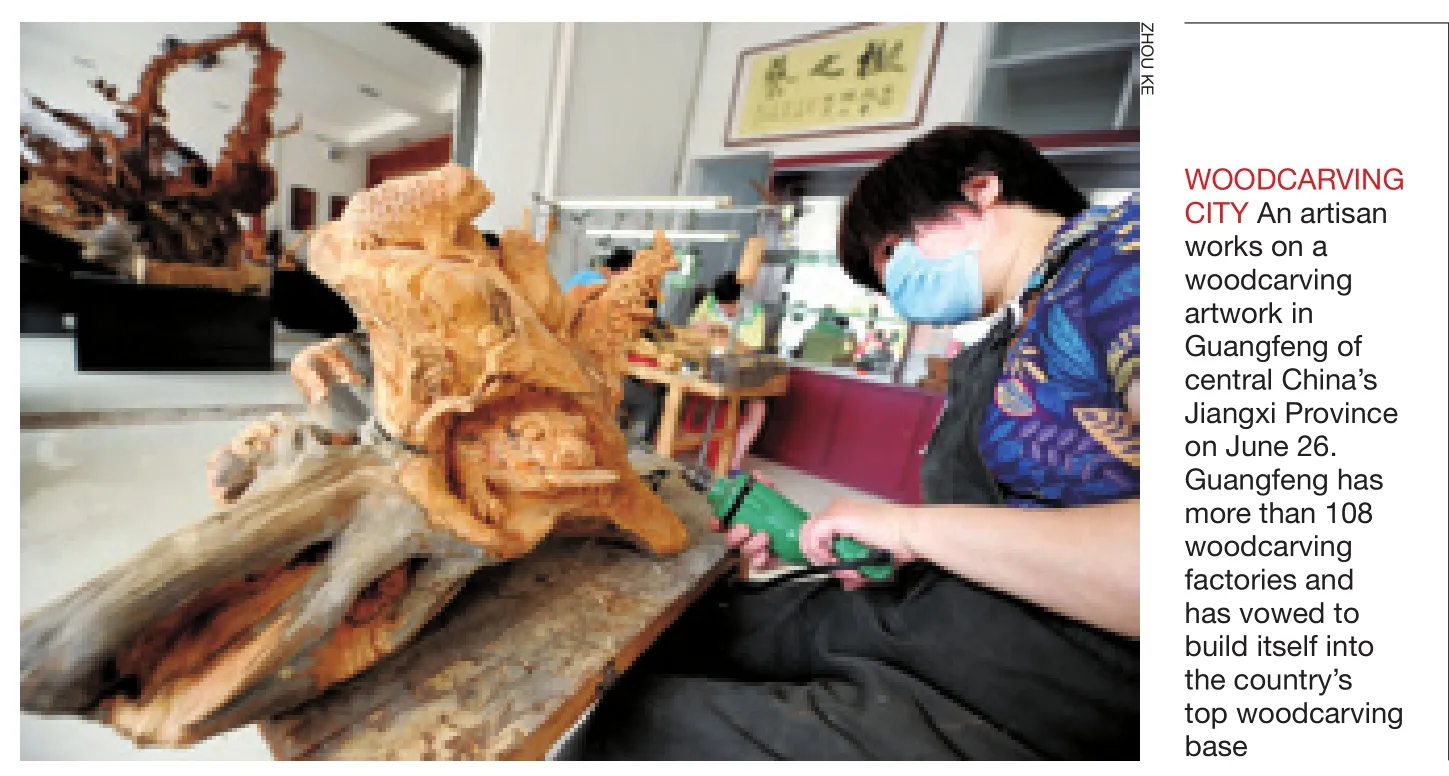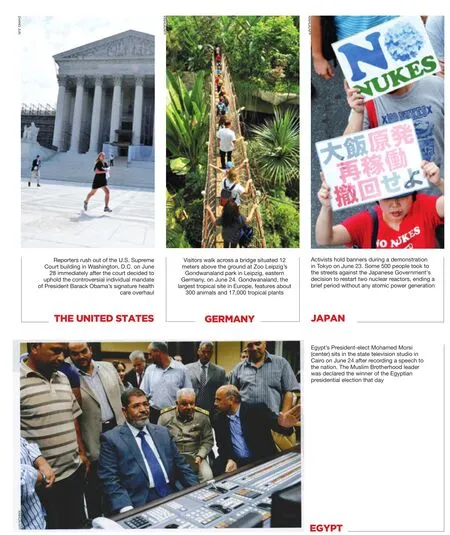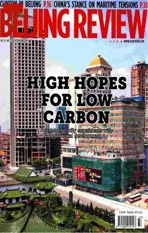THIS WEEK
2012-10-14
THIS WEEK
“China will tighten management of local government debt and strictly regulate new borrowing to guard against fiscal risks. The nation will continue to clean up and regulate local government financing vehicles and bar them from incurring new debt.”
Xie Xuren, Chinese Minister of Finance, in a report on the implementation of the 2011 budget to a session of the Standing Committee of the National People’s Congress in Beijing on June 27
“Production methods are evolving all the time, which makes crackdowns more difficult.”
Liu Yuejin, Director of the Narcotics Control Bureau of the Chinese Ministry of Public Security, saying that despite consistent efforts China still faces a grim drug-control situation, on June 26, International Day Against Drug Abuse and Illicit Trafficking
“The Turkish nation has no intention of attacking. We are just making provisions to stave off all threats to our unity and integrity, for our defense. We have never had an eye on the soil of any country.”
Turkish Prime Minister Recep Tayyip Erdogan, emphasizing that his country will not attack Syria after a Turkish fighter jet was shot down by a Syrian missile, at a ceremony to introduce Turkey’s first domestically produced training jet HURKUS in Istanbul on June 27
“It is imperative that we don’t promise things that we cannot deliver and that we implement what we have agreed. Joint liability can only happen when sufficient controls are in place. I don’t see total debt liability as long as I live.”
German Chancellor Angela Merkel, opposing quick solutions like Eurobonds or the use of European Union funds to reduce Italian and Spanish debt, at the German Bundestag in Berlin on June 26

XinHUa
Corruption Assets
China will strengthen the measures it uses to recover corrupt officials’ illicit assets transferred abroad and demand concerned countries to freeze such assets to cut off the officials’ means for living overseas, a member of the Anti-Corruption Bureau of the Supreme People’s Procuratorate told Xinhua News Agency on June 27.
The official, who wished not to be named, said China has prevented a large amount of illicit assets from being transferred abroad by coordinating with other countries and regions.
However, there is an obstacle to the work, as procuratorates can only seal or freeze illicit assets involving crimes committed while in public duty for a limited period of time if the suspects are still at large or have escaped custody, instead of permanently confiscating assets.
The official said that the work will be fully carried out after the amendment to the Criminal Procedural Law takes effect on January 1, 2013, adding that procuratorates will improve measures to trace illicit money in the future and make breakthroughs in major cases.
Safe Drinking Water
The number of rural Chinese residents who lack access to safe drinking water was reduced by 221 million from 2004 to 2010, according to Vice Minister Du Ying of the National Development and Reform Commission.
“The feat was accomplished after the country launched a government-led rural drinking water project, which attracted an investment of 109.3 billion yuan ($17.2 billion) from 2005 to 2010,” Du said in a report to the bi-monthly session of the Standing Committee of the National People’s Congress, the country’s top legislature, on June 27.
The Chinese Government will strive to solve the problems concerning drinking water safety for millions of rural residents in accordance with the 12th Five-Year Plan (2011-15) for the country’s social and economic development.
By 2015, nearly 80 percent of the rural population will have access to safe drinking water through centralized water supply facilities, Du said.
Famed Mathematician Passes Away
The renowned Chinese mathematician Gu Chaohao passed away in Shanghai on June 24.
Born in 1926 in Wenzhou, east China’s Zhejiang Province, Gu received his doctorate in physics and mathematics from Moscow State University in 1959. He was vice president of Fudan University in Shanghai and president of the University of Science and Technology of China in Anhui Province. He became an academician of the Chinese Academy of Sciences in 1980 and an academician of the Russia-based International Higher Education Academy of Sciences in 1994.
Gu won the nation’s top science and technology award in 2009. He was honored for his important contributions to differential geometry, partial differential equations and mathematical physics, three subdisciplines of modern mathematics.
In August 2009, with the approval of the Minor Planet Center, an asteroid was named after Gu to honor his contributions to humankind.
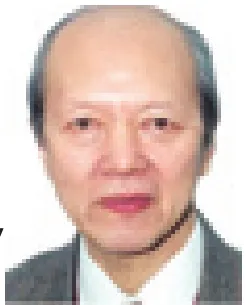
Earthquake in Southwest
A 5.7-magnitude earthquake jolted the border of southwest China’s Yunnan and Sichuan provinces at 3:59 p.m. on June 24, said the China Earthquake Networks Center.
The epicenter, with a depth of 11 km, was located at the border area between Ninglang County in Yunnan and Yanyuan County in Sichuan.
As of June 27, three people had been reported dead and another 394 injured.
The quake also damaged or destroyed the homes of 6,768 families in the disaster zone. More than 28,000 people needed to be evacuated. Provincial and city authorities sent relief supplies, including tents, coats, quilts, bottled water and food to Ninglang.
Healthcare Reform
Missions set in a three-year plan for China’shealthcare reform program in the 2009-11 period have been completed on schedule, according to the Healthcare Reform Office of the State Council, China’s cabinet.

FaSHiOn anD FUn a model poses in a fashion show at the opening ceremony of the 2012 international Tourism Festival at the imperial Palace in Beijing on june 26
The three-year plan missions included establishment of a basic medical care insurance system, implementation of the basic drug system and improvement of primary-level medical services.
Between 2009 and 2011, the Chinese Government invested 450.6 billion yuan ($70.83 billion) in the country’s medical care services, the office said.
By the end of 2011, over 95 percent of the country’s population were covered by basic medical care insurance programs designed for employees, urban residents and rural residents.
The annual government subsidy for urban and rural residents’ insurance was increased from 80 yuan ($12.57) per person in 2008 to 200 yuan ($31.43) in 2011, and the sum will be raised to 240 yuan ($37.72) this year.
In the past three years, state investment in the construction and improvement of 33,000 primary-level hospitals totaled 63 billion yuan ($9.9 billion).
Furthermore, reform programs have been launched in more than 2,000 public hospitals across the country.
Animal Epidemic Survey
Tibet Autonomous Region in west China has launched a large-scale animal epidemic survey, the first in more than 20 years in the region, to boost disease prevention efforts.
Veterinaries will fan out to 40 key spots and epidemic-prone areas in Tibet over the next 18 months to collect samples and conduct clinical studies, said Tsedrum, head vet of the regional government’s Agriculture and Animal Husbandry Bureau.
The survey results will help the government draw epidemic prevention plans from 2015 to 2025 and set up a database for Tibet’s animal epidemic situations, Tsedrum said. The last such survey was conducted in 1989.
This year’s survey, funded by the government, is estimated to cost 24 million yuan ($3.77 million), the official said.
Earth Monitoring Project
China is to invest 517 million yuan ($81.25 million) to build a modern national network to monitor movements in the Earth’s crust and other Earth sciences in the next four years, according to an announcement by the National Administration of Surveying, Mapping and Geoinformation (SBSM) on June 26.
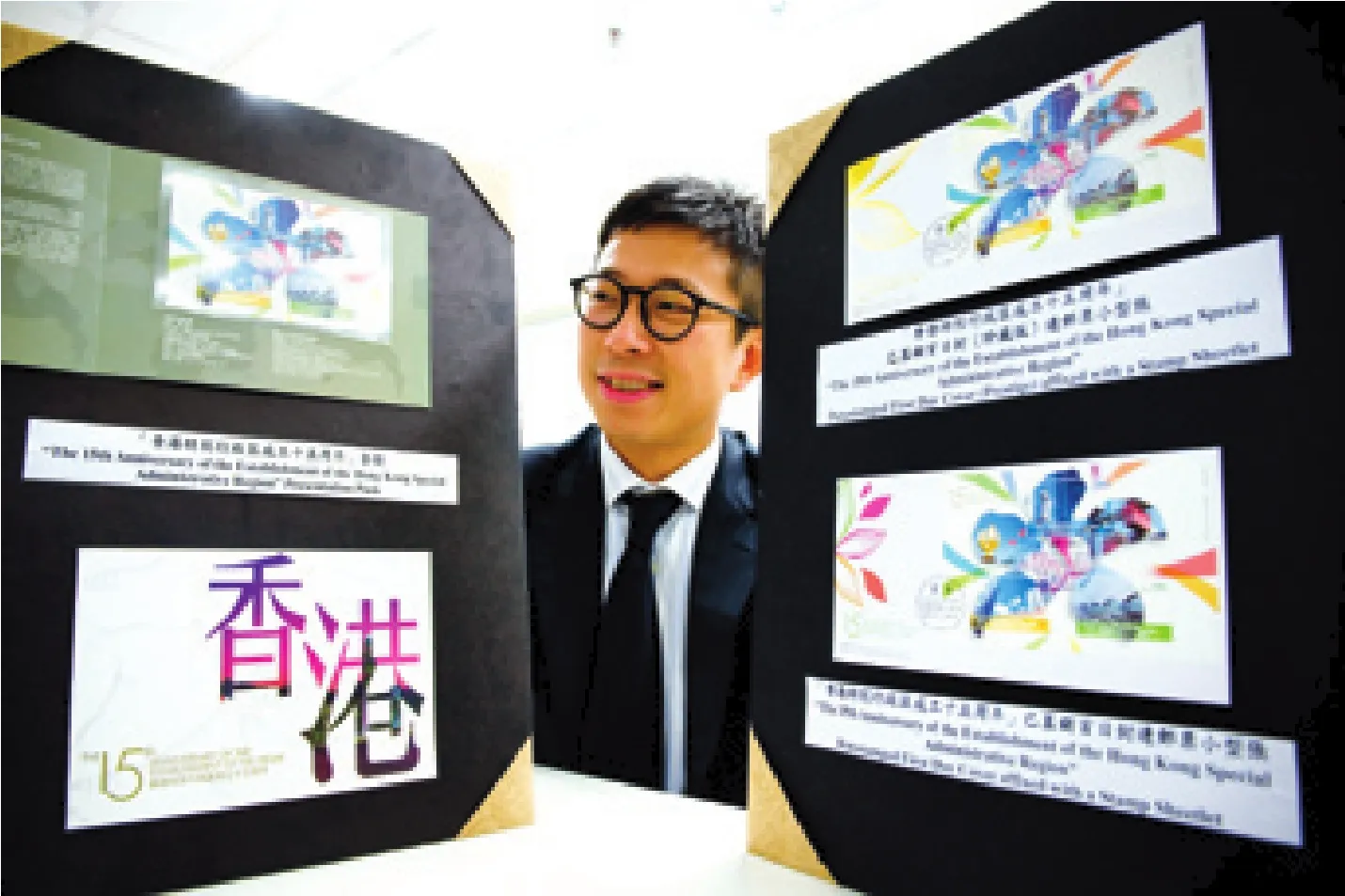
HaPPY anniVERSaRY A Hongkong Post worker shows special stamps and first day covers published for celebrating the 15th anniversary of the establishment of Hong Kong Special administrative Region that fell on july 1

The program will mobilize more than 3,000 technicians nationwide to build a threedimensional and dynamic “geodetic” network with high precision, it said.
The national geodetic network aims to build 360 GPS (Global Positioning System) reference stations, and a satellite-geodesy control network consisting of 4,500 control points.
SBSM Deputy Director Li Weisen said that the network will ensure people can get timely geodetic information for any point in the country’s land area.
The network is also expected to offer services for construction projects, natural disaster relief and mineral resources development.
Divorces on the Rise
More cases of divorce and marriage were handled across China in 2011, according to a bulletin released by the Ministry of Civil Affairs on June 28.
In 2011, more than 2.87 million couples divorced through court ruling or civil affairs administrative procedures, up 7.3 percent year on year, the bulletin said.
The number of divorces per 1,000 people was 2.13 in 2011, 0.13 points higher from the previous year.
Civil affairs authorities nationwide also registered 13.02 million marriages in the same year, a rise of 4.9 percent year on year.
Shale Gas Exploration
A senior official on June 25 called for the country to speed up mass production of shale gas with its own technologies to ensure adequate energy supply.
Efforts must be made to achieve early breakthroughs in the appraisal, exploration and development of shale gas resources, as well as to discover ways to ensure environmental safety, said Liu Tienan, head of the National Energy Administration.
Liu stressed that the shale gas industry should be open to all types of investors. The departments involved should offer tax and fiscal incentives to encourage development.
Shale gas, a clean and high-efficiency energy resource, is produced from shale through a complicated process called hydraulic fracturing. China’s rich reserves of shale gas are estimated to amount to 31 trillion cubic meters, equivalent to the total amount of conventional natural gas.
ODI Surge
China’s outbound direct investment (ODI) in non-financial sectors grew 40.2 percent year on year to $28.52 billion during the first five months, the Ministry of Commerce announced on June 26.
In the first five months, Chinese investors made investments in 1,709 overseas companies based in 115 countries and regions. About 39.3 percent, worth about $11.2 billion, went into mergers and acquisitions.
The flow of ODI into Hong Kong, the United States and the EU dramatically increased, up 50.9 percent, 45.9 percent and 23.6 percent, respectively.
As of the end of May, China’s non-financial ODI had amounted to $350.6 billion.
Currency Swap
The central banks of China and Ukraine on June 26 signed a currency swap contract worth 15 billion yuan ($2.38 billion).
The agreement is for an initial three-year period and could be extended with the consent of both sides.
The move aims to step up bilateral financial cooperation, promote trade and investment, and safeguard regional financial stability.
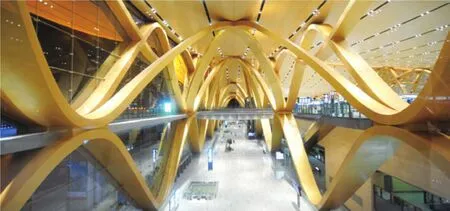
NEW AIRPORT The Kunming Changshui international airport in Kunming, capital of southwest China’s Yunnan Province, goes into operation on june 28
Since the outbreak of the global financial crisis, China has signed currency swap agreements worth at least 1.5 trillion yuan ($238 billion) with a dozen countries to support its trade and investment with these economies.
Sagging Shipbuilding
China’s shipbuilding companies saw sharp declines in output and new orders in the first five months as a result of the dismal global economy.
New shipbuilding orders fell more than 47 percent year on year during the first five months, according to statistics released by the China Association of the National Shipbuilding Industry.
For the country’s ship manufacturers, completed shipbuilding volume also fell more than 10 percent year on year in the first five months, with incomplete orders declining about 27 percent year on year by the end of May.
Due to slack external demand, ships delivered overseas fell more than 11 percent from January to May compared to the same period last year. Marine engineering equipment delivered overseas, however, surged 42.7 percent from a year earlier.
Analysts said severe challenges loom ahead for the shipbuilding industry, as insufficient external demand, shrinking orders and increasing instances of contract defaults will continue to squeeze the sector’s profitability.
Funding Water Efficiency
Chinese authorities will create a fund worth 38 billion yuan ($5.97 billion) by 2015 to develop water-efficient farms in northeast China’s grain-producing areas.
The fund will be used to develop 2.53 million hectares of water-efficient farmland in four northeastern regions, according to a work conference jointly held by the Ministry of Finance, the Ministry of Water Resources and the Ministry of Agriculture on June 26.
The four regions, including Heilongjiang, Jilin and Liaoning provinces, as well as the Inner Mongolia Autonomous Region, produce one fifth of the country’s grain.
The funds will be used to promote efficient irrigation technology in the four regions over the next four years in an effort to ease water shortages and increase grain production.
Bankcard Expansion
China UnionPay Co. Ltd., the country’s largest bankcard payment processor, announced on June 22 that it has inked a cooperation agreement with NETS, a leading payment service provider in North Europe, to expand its service in Europe.
China UnionPay and NETS will work together to expand UnionPay’s card acceptance in more European regions, provide card processing and transaction services to more European institutions and increase service quality.
Currently, China UnionPay cards are accepted in 130 countries and regions worldwide, and its card services have been launched in 37 European countries, including Denmark and Iceland.
Expelled Governor
Huang Sheng, former Vice Governor of east China’s Shandong Province, was expelled from the Communist Party of China (CPC) for severe disciplinary and legal violations. He was also dismissed from all government posts by the State Council, according to a statement released on June 25 by the Central Commission for Discipline Inspection (CCDI), the CPC’s disciplinary watchdog.
Huang has been caught using his position to seek interests for others, taking a large amount of bribes, and causing massive economic losses, in addition to moral corruption. Huang’s illegal gains will be confiscated and his case has been referred to prosecutors, according to the CCDI.
Huang, 58, was born in Shandong and became vice governor of the province in March 2007.
